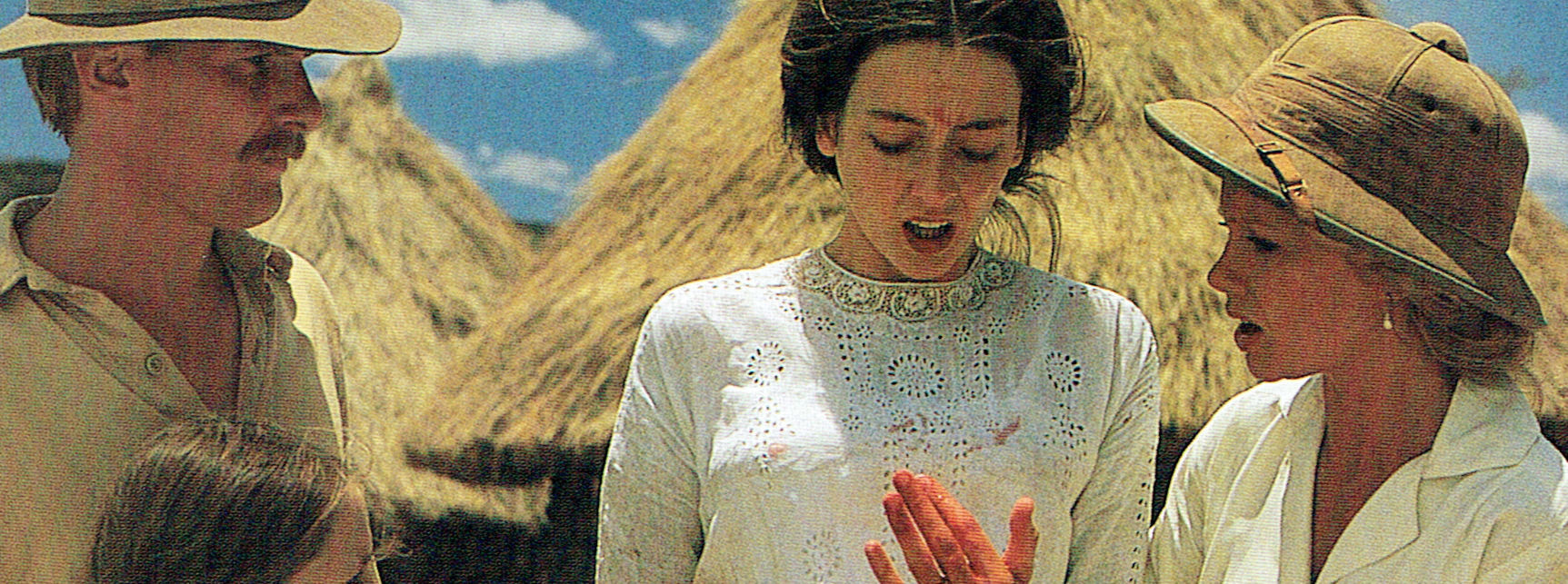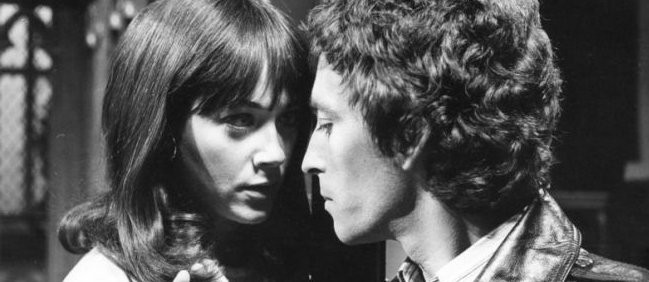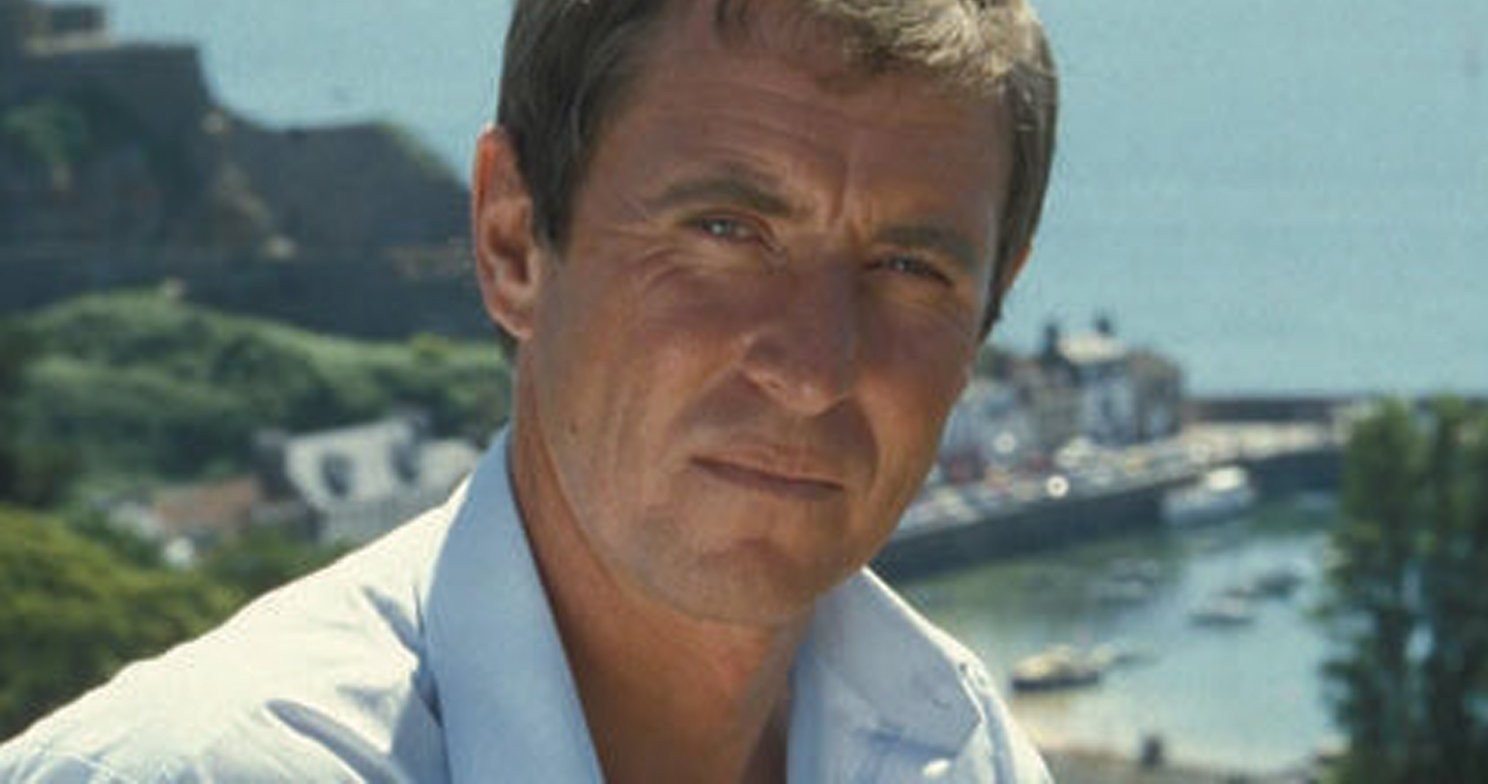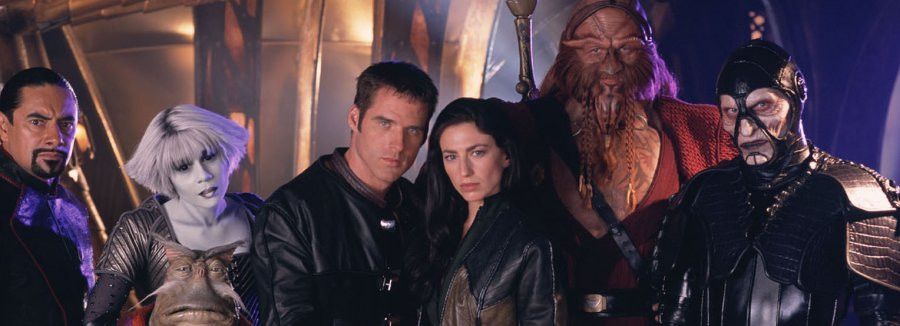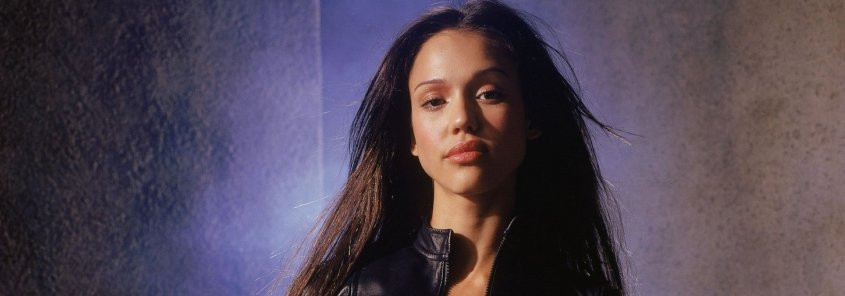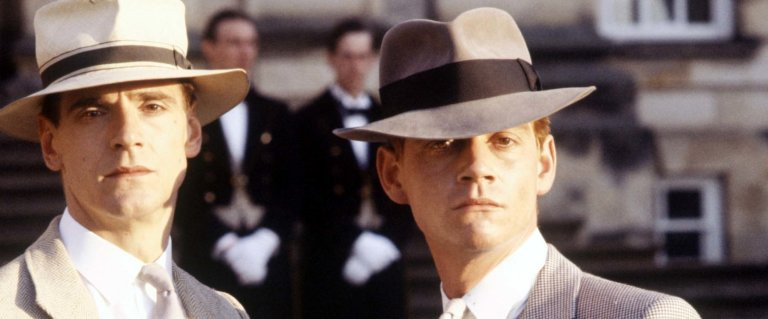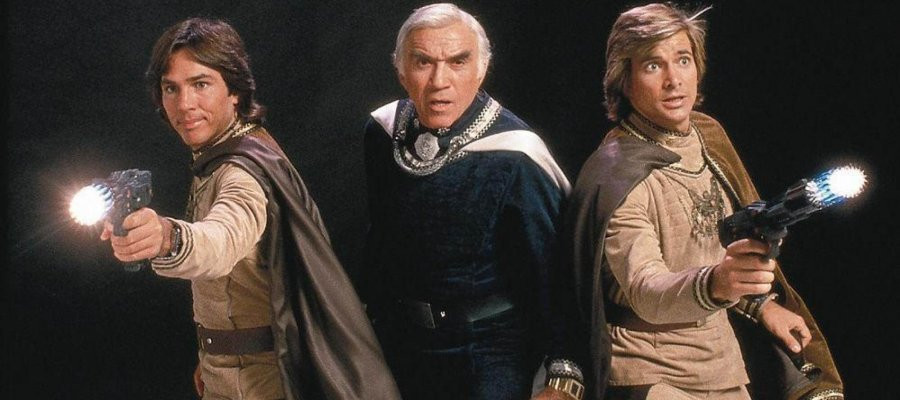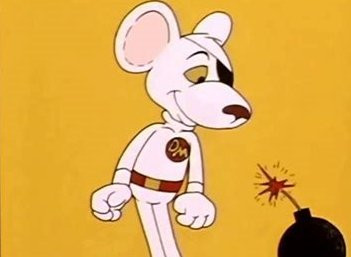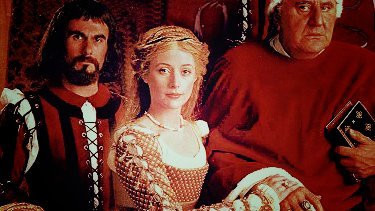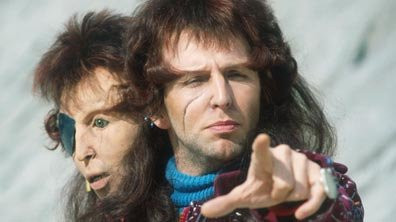
The Hitch-Hikers Guide to the Galaxy
1981 - United Kingdom'The history of The Hitch-Hiker's Guide to the Galaxy is one of idealism, despair, struggle, passion, success, failure and enormously long lunch-breaks' (Hurling Frootmig, 17th acting editor).
From the simple germ of an idea, which came to Douglas Adams as he was lying drunk in a field in Innsbruck, a media spanning phenomena was born. That simple, alcohol aided idea would eventually grow and spread, developing from its genesis on that Innsbruck field to eventually attain world-wide cult status, initially as two well received 1977 Radio 4 serials, then a book - which in turn spawned a series of books - through a record, before finally making the all important leap to television on BBC2 in 1981. That idea was The Hitch-Hiker's Guide To The Galaxy, and its six episode televisual incarnation laid the final foundation stone of fame and lasting appeal for both creator and concept alike.
The TV version of 'Hitchhiker's', directed and produced by the experienced Alan Bell, working in tandem with associate producer John Lloyd, chronicled the misadventures of Arthur Dent, a mild mannered, unassuming, somewhat repressed Englishman who finds himself far from convinced when his best friend Ford Prefect informs him that:
A) The world is about to end in 12 minutes, demolished to make way from a planned hyperspace expressway, and
B) Ford is in fact an alien from the planet Betelgeuse working as a researcher for 'The Hitch-Hiker's Guide To The Galaxy', the universe's best selling travel guide, rather than the native inhabitant of Guildford, Surrey, his friend had always believed him to be.
From that point, everyman Arthur finds himself haplessly swept up in ever- escalating series of wildly imaginative situations, which give full vent to writer Adams' innate flair for creating subtly funny, well observed comic lunacy, with a tellingly perceptive satirical edge.
From escaping the amazingly pedestrian nature of the Earth's destruction in the nick of time, (by stowing away on board the demolition spaceship crewed by alien's called the Vogons), to the twin-headed, self-serving untrustworthiness of the duplicitous Zaphod Beeblebrox, via the breath-taking concept of the legendary planet of Magrathea (whose inhabitants actually build new worlds to order), to Improbability Drives, universe controlling white mice, restaurant's at the end of the universe, computers with the answer to the ultimate question, through Arthur's unceasing quest for a good cup of tea -the show gleefully hopped from genre convention to genre convention with the energy, aplomb, wit and sheer outrageousness of a hyper-intelligent child let lose in it sweet shop.
But if Adams' razor-sharp and gloriously imaginative scripts were the backbone of the series success, then equally important were the contributions of the expertly cast group of actors who imbued flesh, blood and life into the writer's colourfully eclectic group of characters. In the pivotal role of Arthur Dent - basically the audience's one really relatable focal point in an insanity filled universe - Simon Jones effortlessly succeeded in convincing as the world-weary, slightly repressed and altogether middle class English loser, whose very ordinariness serves as an essential counterpoint to the extraordinary situations he finds himself forced to confront during his adventures.
Equally able are the other actors who form the core ensemble, which surrounds Arthur. David Dixon starred as the ever reliable Ford Prefect, Mark Wing-Davey as the two-headed, unapologetically amoral Zaphod Beeblebrox, Sandra Dickinson was Trillian (the only other surviving human who also happens to be the girl who once rebuffed Arthur's amorous advances at a party), and Stephen Moore and David Learner were respectively the voice and the physical presence of Marvin The Paranoid Android, a wonderfully realised comedic foil, whose droning self pity has become a much-mimicked legacy of the show.
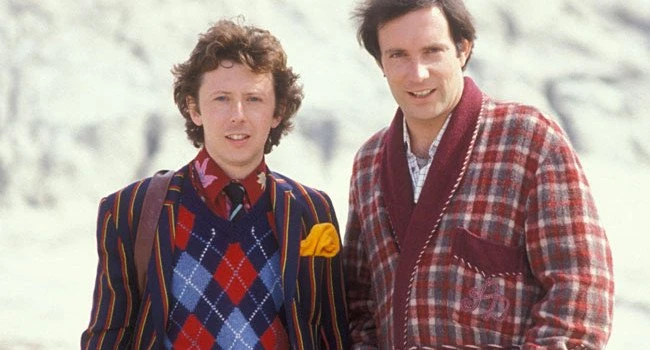
And most importantly of all, acting as the indispensable interface between the characters and events which take place and the audience's understanding of them, the vocal incarnation of the all important Hitch-Hicker's Guide To The Galaxy itself, veteran comedy actor Peter (The Rag Trade) Jones, who's perfectly judged delivery of the book's unending nuggets of sometimes useless - but always entertaining information, is a virtual masterclass in vocal scene stealing. Indeed, somewhat improbably, but entirely in keeping with the surreal ethos of the series itself, there had been some prior debate as to who would be ideal to portray the all- important voice of the guide. It was a common consensus that all involved thought a "Peter Jonesy sort of voice' would be perfect, and several people were auditioned in the hope of finding just such a voice before a secretary eventually pointed out to all concerned that perhaps Peter Jones himself might just fit the bill!
An extremely costly and creatively ambitious production for its time, overall visual effects employed on the television version of The Hitch-Hiker's Guide To The Galaxystill in the main hold up reasonably well, even by the exacting standards required by today's visually more sophisticated audiences. This is especially true of the charming 'computer graphics' created by Rod Lord and Pearce Studios to render the book sequences. However, despite the conviction the images carry, in actuality they were produced without the benefit of computer power at all, rendered by the painstaking process of animating reversed-out line drawings on acetate, using lighting gels for the colours.
Of all the physical effects utilised for the series, unfortunately it's the most expensive and often seen of these that has fared least well. Although a highly sophisticated and costly piece of animatronics at the time, the second head worn by actor Mark Wing-Davey, resolutely fails to convince as a living appendage. But to overly criticise such deficiencies would be churlish. During its day, it worked, and worked well enough not to detract overly from the high quality evident in all other aspects of the production.
Born in Cambridge, England, in 1952, creator Douglas Adams had already established himself as a writer for radio, television, and theatre and had worked at various times in such diverse and unlikely professions as hospital porter, barn builder, chicken-shed cleaner, bodyguard, radio producer and script editor of the BBC's legendary, Doctor Who prior to the debut of 'Hitch-Hicker's.'
A polymath of breath-taking range, the show's visionary creative force would ultimately suffer an untimely death at the too young age of 49 on the 11th of May 2001 at the height of his creative powers. But although Adams the man is no longer with us, Adams the creative force remains as an active and potent legacy. The oft delayed big screen version of the series once again has been green lighted for pre production by Disney, a heartbreaking process which Adams himself vividly once described as being: "like trying to grill a steak by having a succession of people coming into a room and breathing on it".
By turn's imaginative, insane, groundbreaking and most importantly of all, still hysterically funny, The Hitch-Hickers Guide To The Galaxy effortlessly remains the very pinnacle of televisual science fiction inspired comedy.
Published on December 21st, 2018. Written by Laurence Marcus & SRH for Television Heaven.


